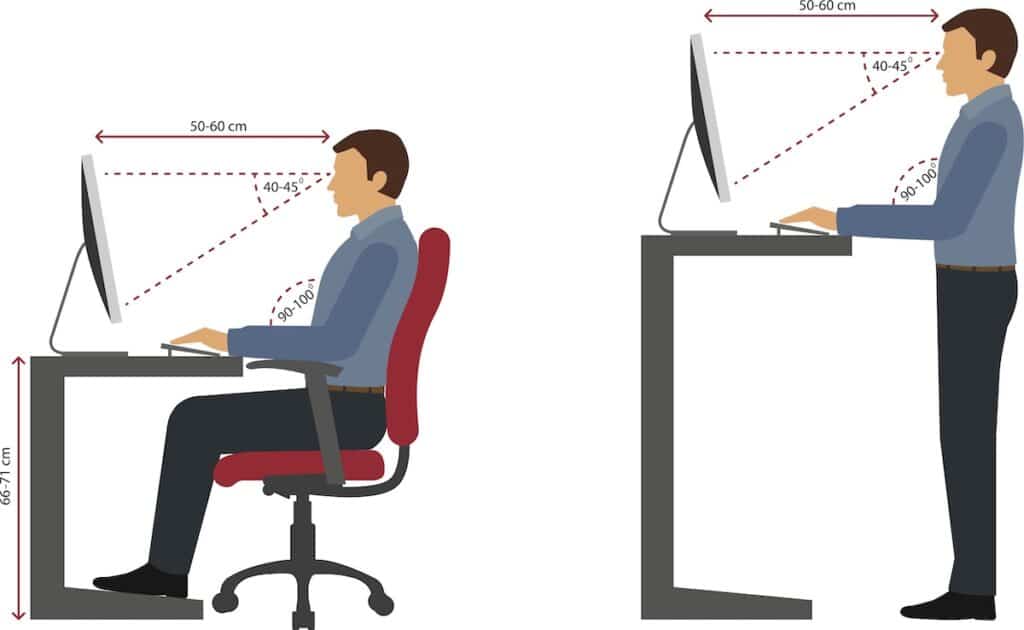Are you searching for preventative measures to help with neck pain? Neck pain can be debilitating, and it’s essential to take measures to prevent and manage it.
Here Are 7 Preventative Measures That You Can Take For Neck Pain:
1. Posture
The way you sit and stand can affect your neck pain. Therefore, it is essential to maintain good posture when sitting (or standing) for long periods to decrease tension in the muscles and joints in your neck. When sitting, ensure that your ears are over your shoulders, your shoulders are back and relaxed, your chin is parallel to the floor, and your feet are resting flat. Additionally, computer users should adjust their monitor height so that they are looking slightly down at it instead of straight ahead or up at it
2. Exercise
Regular exercise can help strengthen the muscles in your neck and back, which provide support for the spine. Gentle stretching is also beneficial as it can help increase flexibility, reducing the chance of injury. Neck exercises such as neck rotations and lateral flexion can help strengthen the muscles in your neck and relieve tightness. It is crucial to speak with a physical therapist or exercise specialist before beginning any new exercises so that they can provide specific instruction tailored to your needs
3. Rest
Too much activity without rest can cause undue strain on the muscles in your neck, leading to increased pain, so taking breaks throughout the day and getting adequate rest at night is essential. Additionally, it is vital to reduce stress levels as stress has been known to worsen neck pain. Stress reduction activities such as yoga, meditation, deep breathing, or progressive muscle relaxation techniques can be beneficial for managing neck pain.
4. Alternative Therapies
Various alternative therapies may be beneficial in managing neck pain, including acupuncture, massage, chiropractic care, and physical therapy. However, it is essential to consult your doctor before beginning any of these therapies to ensure they are safe and appropriate. Additionally, some studies have suggested that mindfulness-based stress reduction can help reduce chronic neck pain.
5. Pain Medications
Over-the-counter or prescription medications may be prescribed to reduce inflammation and muscle spasms associated with neck pain. These medications should only be used on an as-needed basis and not taken regularly without consulting a doctor first.
6. Surgery
If other treatments do not provide relief, then surgery may be recommended. Surgery is usually the last resort option and is only considered if other treatments have not worked or if there is an underlying condition causing neck pain. Discussing all treatment options with your doctor before deciding on surgery is essential.

7. Prevention
The best way to prevent neck pain is to maintain a healthy lifestyle which includes eating a balanced diet, regular exercise, good posture, and adequate rest. Additionally, it is important to avoid sitting or standing in one position for too long, as this can strain the muscles in your neck. Finally, try eating Delta 8 Gummies to help ease the pain, wear comfortable shoes with good support, and use ergonomic chairs to reduce stress on the spine.
The Last Word on 7 Preventative Measures To Help With Neck Pain
Following these tips is an excellent start to doing so, but if your neck pain persists, you should consult with your doctor or physical therapist for personalized treatment advice. With proper care, neck pain can be reduced or even eliminated.




